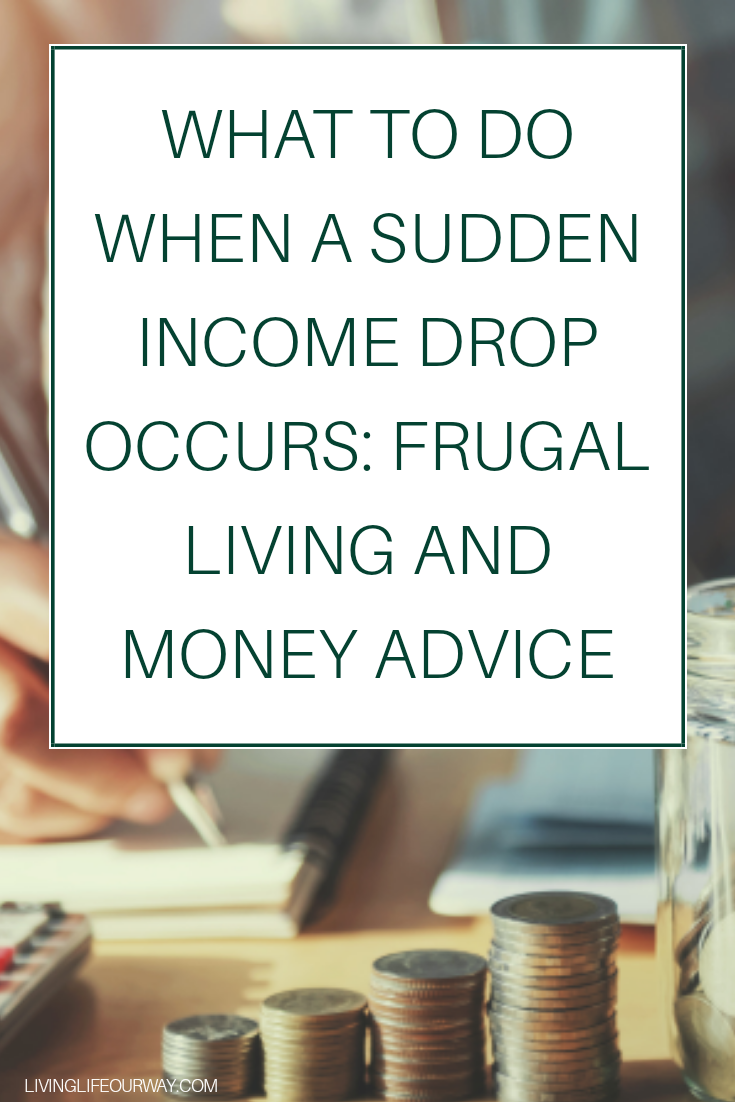At the time of writing, the Coronavirus pandemic has financially affected billions of people worldwide by causing a sudden income drop; myself included. Circumstances are what they are, and whilst it is a little unfair to say we’re all in the same boat; we are at least all trying to seek shelter from the same storm.
Global pandemic or not though, times like these do crop up. It can be one of the hazards of being self-employed; there are, of course, various factors that can mean an unexpected income drop when self-employed especially.
For me, it helps to know where to turn for financial support and how to live more frugally when facing a time of financial uncertainty. Here is what I have learned…

Financial Support
When struggling financially due to a change of circumstances, the first thing I suggest is looking at what support is available. There are charity grants that are worth investigating into; here in the UK there is Turn2Us for example. If you are self-employed or own a small business, you might be eligible for one of the government’s various schemes, so this is something else to check out. Besides applying for such grants, there are also benefits to claim, such as Universal Credit, to help make ends meet.
Bill Reduction Schemes
In addition to finding ways to bring in more money after an unexpected income drop, there are ways to cut what is going out too. Water companies and council tax offer schemes to reduce bills for low income households. The criteria can vary in different regions so you will need to do your own research. The water is known as Low Income Tariff, in this area at least, and the other is called Council Tax Reduction. These can help reduce some outgoings at least, relieving some pressure.
Speaking to Creditors
Credit card companies, loans and mortgage lenders can all potentially help ease the pressure via repayment holidays if needed. They also might suspend charges, which helps. Bare in mind though, that this will extend the length of time it takes to repay the debts, and could affect interest rates on the outstanding amount too. So whilst it is a good short term solution, it may have long term impact. Of course, if the money isn’t there to pay it at the moment, this is largely irrelevant.
Look At What’s Left
I then looked at else is left coming out each month. There are a whole load of options online, including budgeting calculators for example, to help with this.
At this point, I also checked that there weren’t services or subscriptions that I am not currently using. I found a few actually; a subscription channel I no longer use, a food delivery service that I am unable to use at the moment and a few of Squiggle’s educational sites that didn’t work out for her personally so we switched to others. There are also free resources of course, such as the Government supported Oak National Academy, to fall back on if money is tight. Once these were all cancelled, despite being small amounts individually, they added up to a noticeable amount overall.
Frugal Living
I am quite minimalist and don’t tend to purchase what is not strictly needed anyway. (Although not to the point that I would deprive myself of enjoyment in life of course!) I don’t buy into fast fashion, or spend huge amounts on cosmetics. As part of an eco-friendly lifestyle I try to repair or reuse things if I can rather than replace them, and I buy secondhand, or use freecycle and swap sites, rather than buy new, whenever I am able to. I also take advantage of deals and special offers when possible. All this helps me to naturally to live more frugally, which then comes in useful when experiencing an unexpected income drop.
*This is a collaborative post


Times are tough at the momemt – thanks for your advice